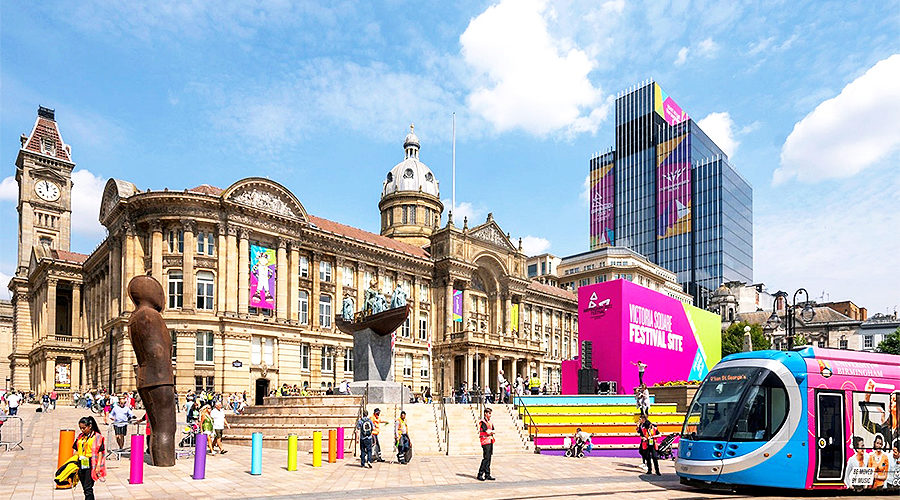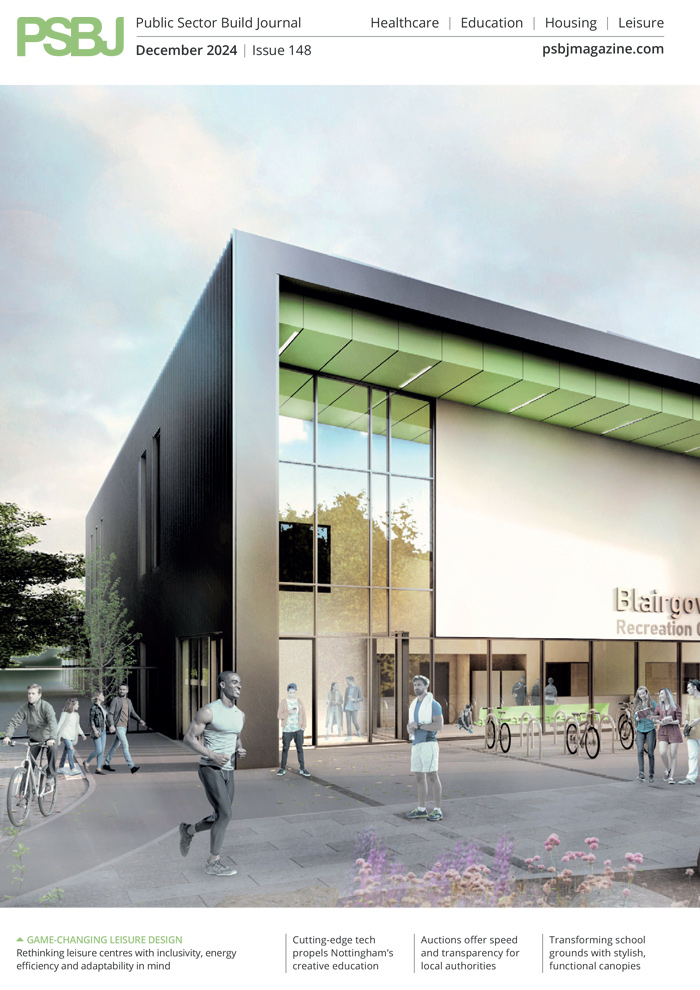Hosting major sporting events provides cities with huge opportunities to invest in their communities and make a name for themselves globally. But with this opportunity comes great responsibility, particularly in delivering an event that is as sustainable as possible while also providing value for money and ensuring long-lasting benefits to the citizens of these cities and regions long after the games are gone, says Arshad Hussain, UKIMEA Host Cities Leader at Arup.
Arup
It is no small feat to make this happen, with a ‘team behind the team’ supporting cities and governing bodies – including Arup’s Host Cities specialists. This team is crucial in bringing the value of private sector resources and expertise to the partnership required to deliver successful events enabled by the public sector. This approach allows cities to deliver above and beyond their commitments, enhance their position globally for future events and opportunities, such as tourism and attracting business and workers and leave a powerful legacy.
The Birmingham Commonwealth Games
Two years on from its opening ceremony, the Birmingham 2022 Commonwealth Games fits this brief, exemplifying how the public and private sector can operate as one for the benefit of the millions of citizens who depend on them. The largest multi-sport event and cultural programme to be held in England since the 2012 London Olympics, the games continue to shape and benefit local communities today. Arup acted as a delivery partner, supporting Birmingham City Council from preparation and delivery through to transport and venue design.
The UK Government estimated that the games contributed £1.2bn to the UK economy, with nearly half of that benefitting the West Midlands. Meanwhile, the games generated £79.5m in social value, including employment, training and volunteering, as well as increases in activity and wellbeing. This was achieved through cost-effective planning and ensuring facilities and infrastructure were repurposed so that they continued contributing to communities for their life after the games.
The challenge of funding major sporting events continues to be a focus now, with solutions to reduce costs and the level of adaptation required to host an event being a priority in planning. Most recently, for the Paris Olympics and Paralympics, the use of existing and temporary venues was a sensible cost-saving measure. Similarly, opting for temporary venues can make the most financial and environmental sense.
Prioritising lasting social engagement
Birmingham’s games demonstrate the value of prioritising social engagement, involving communities at every step of the process. The city committed to the Birmingham Business Charter for Social Responsibility framework to identify and embed opportunities for social, environmental and local economic engagements in Birmingham.
These commitments ranged from ensuring a specific number of hours were dedicated to supporting young people in the city into work, through to a set percentage of local people being employed, donations to local community projects and careers fairs at schools. For example, an effort was made to engage the communities in the more deprived areas of the city, with children from these areas being given free tickets to the event – in the hope that it could inspire them and lift their aspirations. This system meant that communities came with the city on its journey.
Meanwhile, Paris limited and prioritised its games-related development to benefit its residents, building 400km of new cycle lanes and introducing ‘pedestrian hearts’ in each district, including a city-wide Limited Traffic Zone (LTZ) that reserves areas for pedestrians, cyclists and public transport. By using many temporary buildings, they were able to showcase iconic locations – such as the Eiffel Tower backdrop – but could quickly return these areas to normality when the games were over. This ‘lighter touch’ approach could set the direction for hosting future major events.
Moving thousands of people around a city
Preparing to operate a complex sporting event covers numerous challenges, from transport through to refuse collection. Moving hundreds of thousands of people around a city, including athletes, officials and fans, while keeping the day-to-day critical operations running and enabling citizens and businesses to go about their daily lives is perhaps the biggest obstacle.
While cities such as Paris are accustomed to attracting millions of tourists over summer and can, therefore, absorb even higher numbers, transporting significant numbers of people is much more challenging in cities such as Birmingham. Safety, therefore, becomes the number one concern, with city councils becoming responsible for far larger numbers of people than they’re accustomed to. This challenge becomes even more paramount given political, business, celebrity and other delegations attracted to major sporting events – often in a high-profile manner, such as Tom Cruise abseiling from the stadium roof at the Paris Olympics closing ceremony.
And, regardless of how well-prepared cities are, the nature of attendee safety is often somewhat outside of their control; organisers need to be prepared for the unexpected, such as the Paris train lines being attacked before the games. Ultimately, spectator safety is everything; if something goes wrong in this regard, it risks tarnishing the legacy of an event.
Becoming a global city
It is critical to define at the outset what a city is trying to achieve through a major sports event, which has the potential to accelerate progress towards a city’s priorities. A key part of Arup’s role in supporting Birmingham Council was to enhance the city’s position as a leading host for global events. This was achieved through the design, planning and technical delivery of the redevelopment of the city’s stadiums, including the Alexander Stadium and the design of the Sandwell Aquatics Centre. Both of these venues not only played a pivotal role in the games but are now driving a legacy of regeneration and investment for both areas of the city. This success is shown by Birmingham being set to host the European Athletics Championship in two years, as well as being announced as hosts for the 2027 Invictus Games.
Much can still be learnt from Birmingham’s 2022 Commonwealth Games, demonstrating how the private and public sectors can collaborate to boost the confidence and capacity of a UK city for years to come. Where community engagement, citizen safety and cost efficiencies are prioritised with the support of a ‘team behind the team’, major sporting events have the potential to create legacies that truly shift the future prospects of a city.










